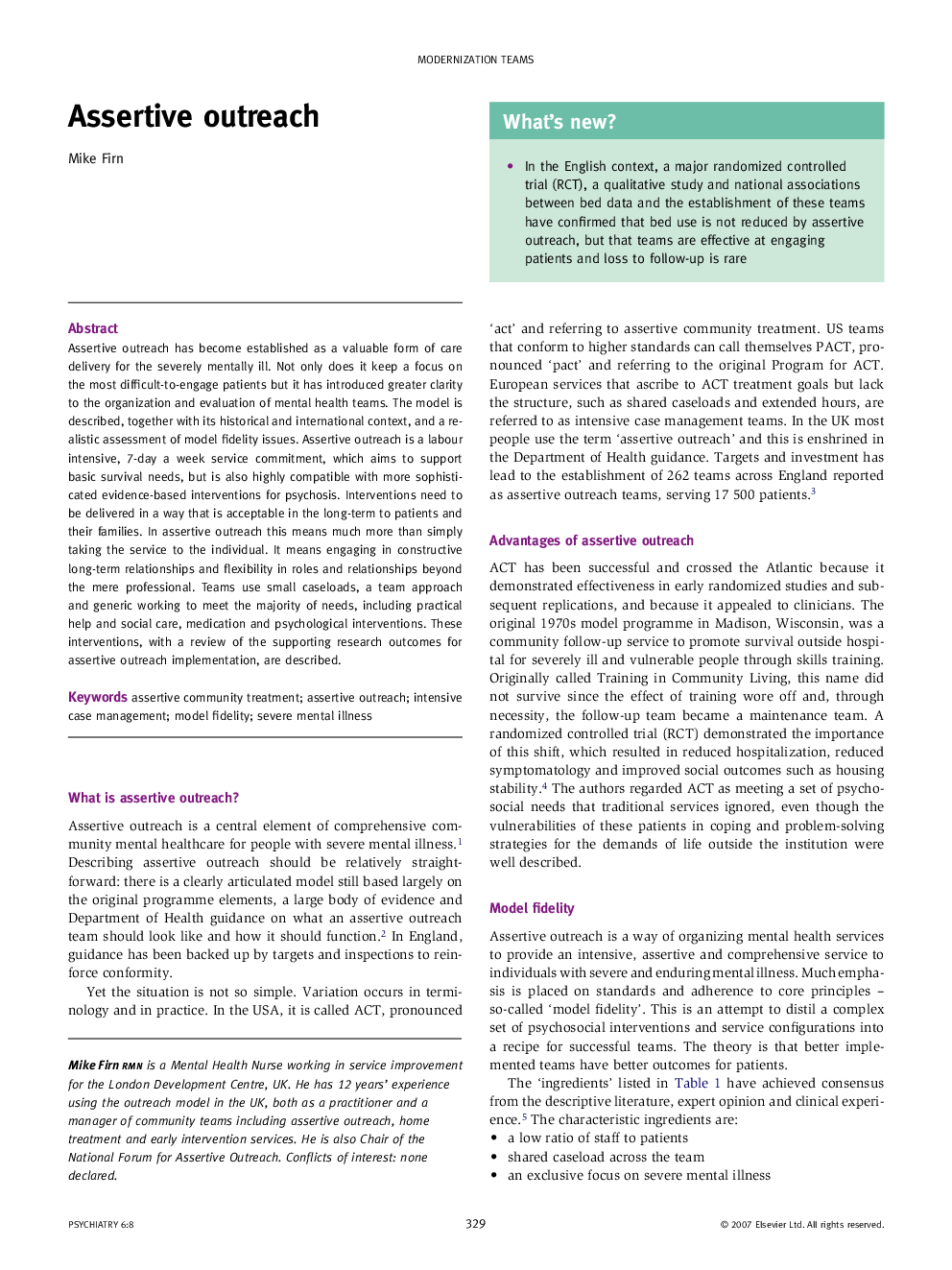| کد مقاله | کد نشریه | سال انتشار | مقاله انگلیسی | نسخه تمام متن |
|---|---|---|---|---|
| 4190144 | 1278157 | 2007 | 4 صفحه PDF | دانلود رایگان |

Assertive outreach has become established as a valuable form of care delivery for the severely mentally ill. Not only does it keep a focus on the most difficult-to-engage patients but it has introduced greater clarity to the organization and evaluation of mental health teams. The model is described, together with its historical and international context, and a realistic assessment of model fidelity issues. Assertive outreach is a labour intensive, 7-day a week service commitment, which aims to support basic survival needs, but is also highly compatible with more sophisticated evidence-based interventions for psychosis. Interventions need to be delivered in a way that is acceptable in the long-term to patients and their families. In assertive outreach this means much more than simply taking the service to the individual. It means engaging in constructive long-term relationships and flexibility in roles and relationships beyond the mere professional. Teams use small caseloads, a team approach and generic working to meet the majority of needs, including practical help and social care, medication and psychological interventions. These interventions, with a review of the supporting research outcomes for assertive outreach implementation, are described.
Journal: Psychiatry - Volume 6, Issue 8, August 2007, Pages 329–332